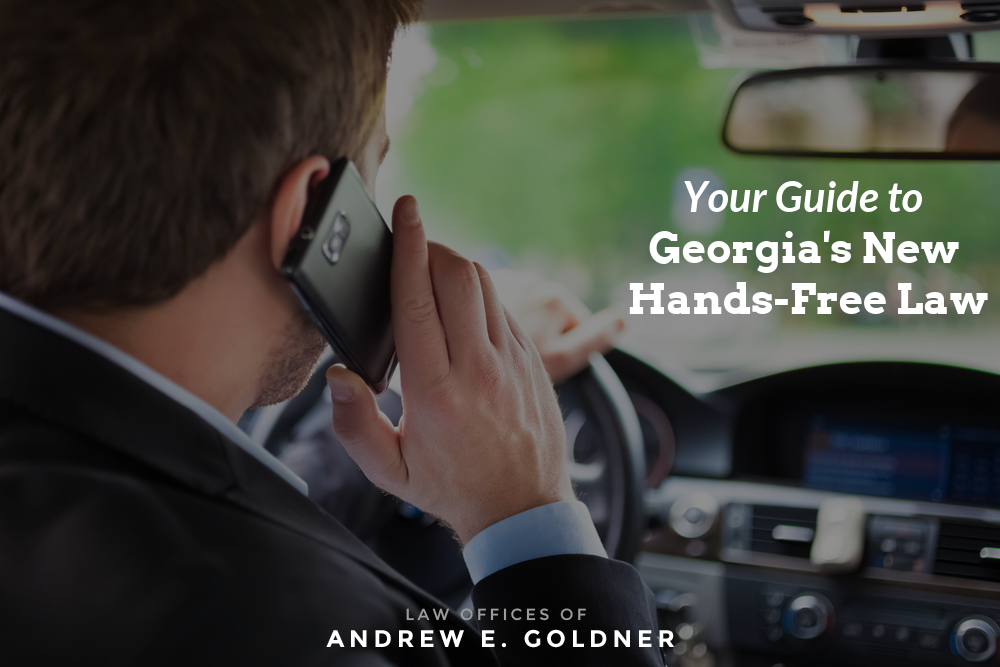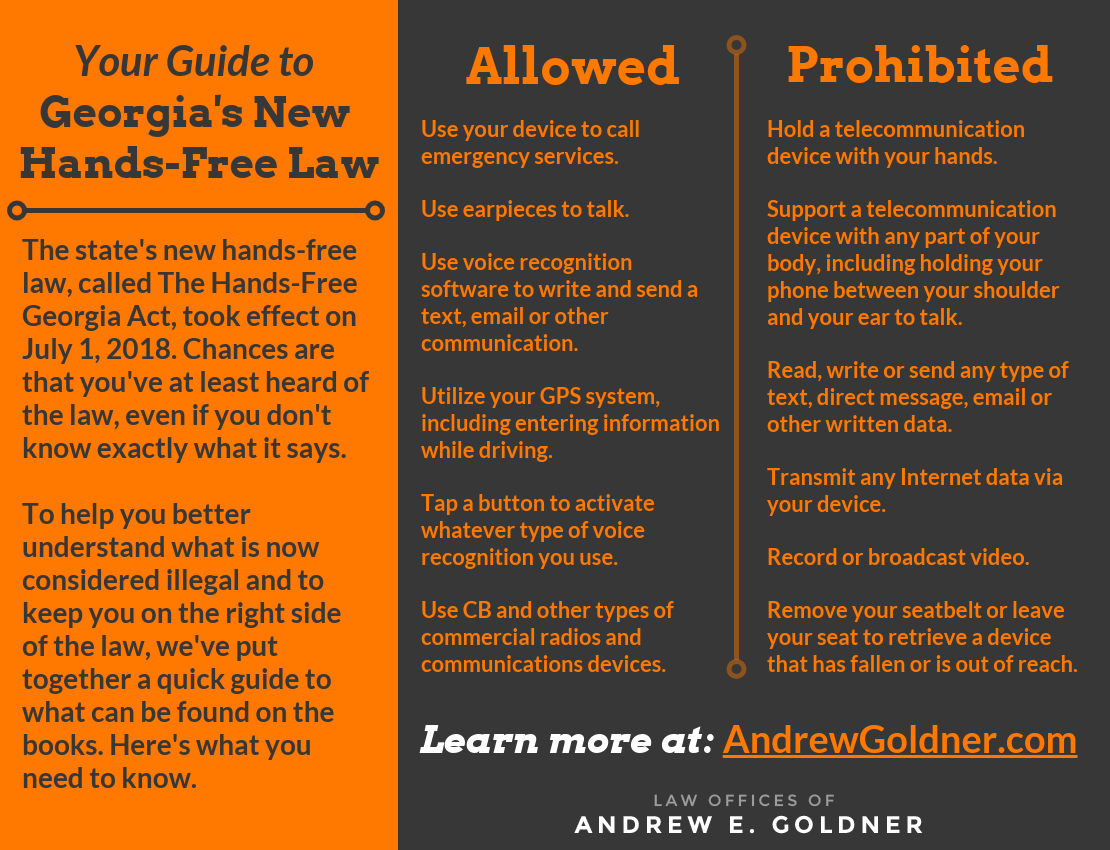
The state’s new hands-free law, called The Hands-Free Georgia Act, took effect on July 1, 2018. Chances are that you’ve at least heard of the law even if you don’t know exactly what it mandates.
To help you better understand what is now considered illegal and to keep you on the right side of the law, we’ve put together a quick guide to what can be found on the books. Here’s what you need to know.
FAST FACTS
- Georgia ranks 5th in states that have had the largest rise in motor vehicle deaths between 2014 and 2016.
- Deaths related to distracted driving and other causes rose by a third in Georgia between 2014 and 2016.
Prohibited Behaviors
The law tells drivers what they can and cannot do behind the wheel. If you have the keys and are planning on driving, you need to know what is now prohibited. You may no longer:
- Hold a telecommunication device with your hands.
- Support a telecommunication device with any part of your body. For example, holding your phone between your shoulder and your ear would be considered supporting your phone.
- Read, write or send any type of text, direct message, or email.
- Transmit any Internet data via your device.
- Record or broadcast video.
- Remove your seat belt or leave your seat to retrieve a device that has fallen or is out of reach.
Permitted Behaviors
The law doesn’t make it illegal to do everything with your device. You may still:
- Use your device to call emergency services if you are involved in or see an accident or other situation that requires a response from police, firefighters or medical personnel.
- Use earpieces to talk.
- Use voice recognition software to write and send a text, email or other communication.
- Utilize your GPS system, including entering information while driving.
- Tap a button to activate whatever type of voice recognition you use.
- Use CB and other types of commercial radios and communications devices.
A couple of things to note: These laws don’t apply to police, firefighters and other emergency personnel, or to employees or contractors responding to a utility emergency. The laws do apply to those stopped at a red light. You must be parked lawfully to use your cell phone or electronic device behind the wheel.
Penalties
If you are cited for a first offense, you face a point on your license and a $50 fine. If you are cited twice in a period of two years, you will earn two points on your license and could be given a $100 fine. A third offense means three points on your license and a fine maxing out at $150. Subsequent offenses within a two-year period mean that your license could be suspended.
Talk to an Atlanta Car Accident Attorney Today
If you are involved in a car accident caused by a distracted driver, you need an Atlanta car accident lawyer. Call our office today to schedule your case evaluation and learn more about your legal rights. You and your family should not have to suffer financially due to the actions of someone else. Our Atlanta car accident attorney can assist you in seeking the compensation you are entitled to.



